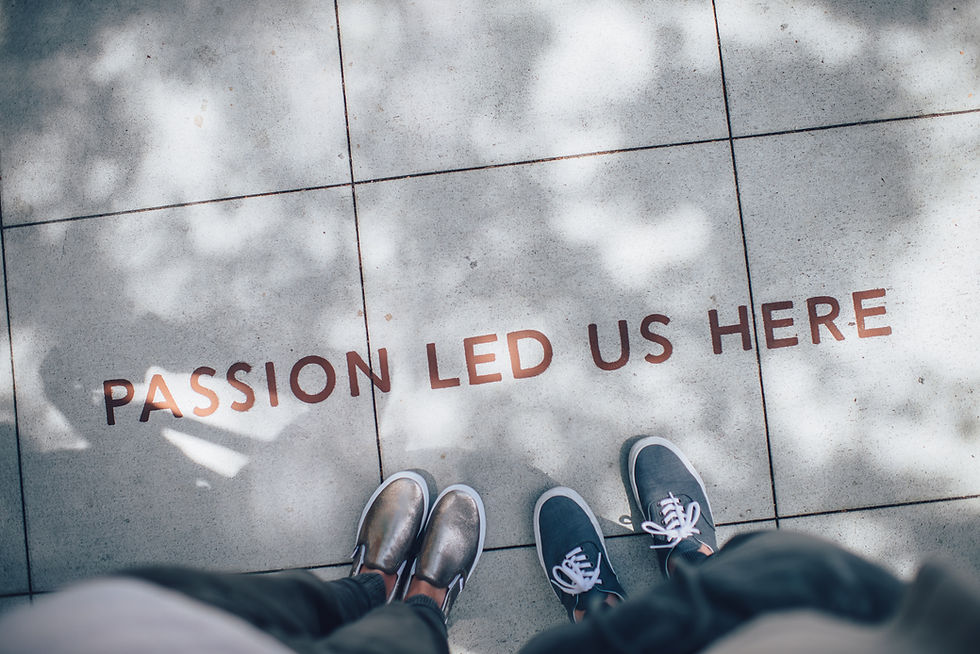Learning to fail, make and innovate
- Shelby Hurst

- Mar 14, 2019
- 3 min read
Updated: Mar 24, 2019
After much reflection, I have found that failure is a taboo word in my life and I think many people can relate to that. Often times during my childhood, going through schooling, I would try to avoid putting myself in positions where I could fail. As I have gotten older, in the midst of my first teaching job, I’ve realized it is very difficult to avoid “failure”. I have slowly begun to consciously change my way of looking at my failures to seeing it as the process of iteration, thanks to many mentors and loved ones. There is a valuable lesson in the process of iteration. When you learn from your mistakes or work through the kinks, you are building many skills, but notably, perseverance, learning to design, to make and to innovate. For example, through administration and colleague observation of my teaching practice, I have learned from an objective point of view aspects that I can improve in! Constructive criticism is valuable feedback that I use to grow as a teaching professional.
In my master’s course this week, we were asked to look at the way people learn, specifically maker education. Dr. Mitchel Resnick, LEGO Papert Professor of Learning Research, wrote Lifelong Kindergarten and he said, “According to the maker ethic, the most valuable learning experiences come when you're actively engaged in designing, building, or creating something when you're learning through making” (2017, p.36). The maker education goes hand in hand with learning through iteration. Resnick goes on to discuss how children continue to construct new things and receive feedback from their teachers, peers, themselves and others (2001). Then they revise, modify and build upon their ideas. The foundations of maker education can be connected to Jean Piaget’s constructivism and Seymour Papert’s constructionism. Piaget said that children are active builders of knowledge and evolve over time. Papert builds on this idea and Resnick explains it, “As children construct things in the world, they construct new ideas in their heads, which motivates them to construct new things in the world, and on and on, in a never-ending spiral of learning” (2017, p.38). Unfortunately, especially at the secondary level, there is a lack of value in the creative process. Yet, to help prepare our students for society, the creative process must play a more important role in the classroom.
Now, this raised a couple of questions in my head that I am still reflecting on within my professional life. One question I asked myself was, what would maker education look like in my classroom? I teach English and Social Studies for 9th and 10th-grade students in Special Education. I would love to continue to learn about creative tools that are out of the box ways for my students to present their information, while still hitting our academic standards. Also, with keeping the maker education in mind, I want to discover more ways to utilize my students’ one to one Chromebook as a means of expression. Richard Culatta mentions in his TEDx talk in 2013 that there is a “divide between those who use technology to re-imagine learning and those who simply use technology to digitize traditional learning practice.” I want to consistently incorporate technology to re-imagine learning.

The other question I thought about was “how do my students feel about failure?” I have noticed that my students avoid failure as well and I want to help my students become more comfortable with failure. In my classroom I want to foster a growth mindset and encourage the process of iteration. Through all of this reflection, I have created goals for myself and pinpointed the ideals I want to be embedded into my classroom norms. I display my self reflective thoughts through an info-graphic I created on Piktochart. Overall, this week has increased my understanding of maker education, constructivism and constructionism. Plus, the benefits of cultivating this type of learning environment for my students.
Author's creation
Resources:
Edutopia. “Reframing Failure as Iteration Allows Students to Thrive.” YouTube, YouTube, 12 Nov. 2013, www.youtube.com/watch?v=qJyNxx82vGQ.
Resnick, M. (2001, September). Lifelong kindergarten. In presentation delivered at the annual symposium of the Forum for the Future of Higher Education, Aspen, Colorado.
Resnick, M. (2017). Lifelong Kindergarten: Cultivating creativity through projects, passion, peers, and play. Cambridge, MA: The MIT Press.





Comments